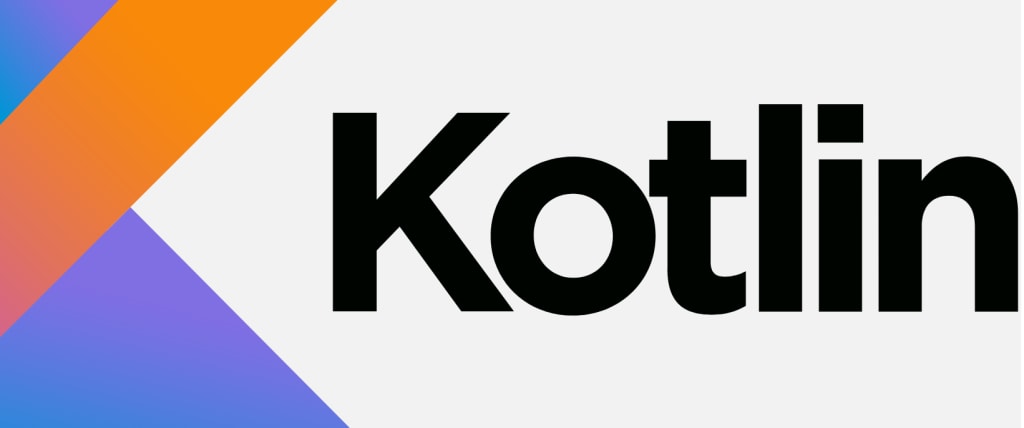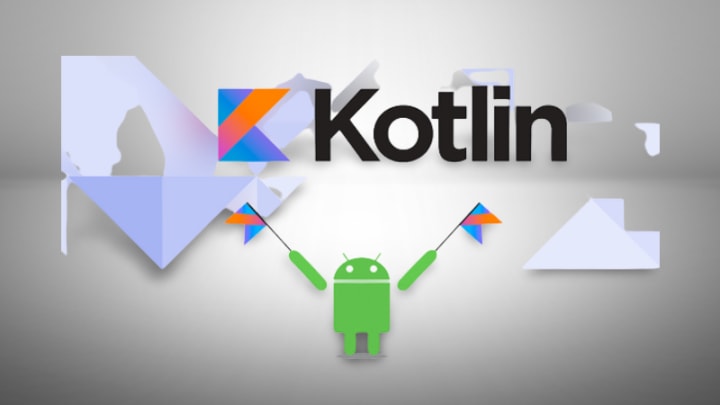What is Kotlin and What is it Used For?
You will learn about Kotlin and its various uses. Whether you're a beginner or an experienced programmer, you'll find Kotlin to be a valuable tool in your arsenal.

The right programming languages are the building blocks for every software applications, and in order to create a software or an application, one must be well versed in a wide variety of programming languages such as Java, Python, PHP, and so forth. Kotlin is one such programming language that is very popular among programmers. Your interest in Android application development probably led you to hear of Kotlin. The Kotlin programming language has become one of the most popular ones over the past five years, and it is one of the hottest at the moment. With features from both object-oriented and functional programming, Kotlin is an open source, "pragmatic", statically typed, programming language that was designed for both the JVM (Java Virtual Machine) and Android. In fact, over 80% of the 1000 most popular Android apps currently use Kotlin. In the midst of Java's overwhelming popularity as the most popular platform for Android app development, Kotlin has taken its place as one of the most powerful alternatives to Java. Kotlin is making significant inroads into the app development industry nearly everywhere.

This article aims to provide a brief overview of the Kotlin programming language, as well as a short introduction to some of its features. We will be covering a variety of topics here including what Kotlin is, why it is unique, what it offers, as well as how it differs from Java.
What is Kotlin?
Originally designed for the Java Virtual Machine (JVM) and Android, Kotlin is a free, open-source, statically typed language that combines object-oriented and functional aspects. It is intended to be compatible with Java libraries, Java virtual machines, and Android devices. However, Kotlin is designed to run on the JVM, but it can also be compiled into either native code or JavaScript code. JetBrains and Google, through the Kotlin Foundation, are the main sponsors of Kotlin. There is a strong emphasis on interoperability, clarity, safety, and the availability of tooling support in the project.
The JetBrains team is currently working on bringing Kotlin to iOS as well as embedded systems in order to potentially make it an all-in-one language for all the types of applications that are currently available. Kotlin's clean language design and complete set of features have made it so popular among developers throughout the world. Its purpose is not to introduce new concepts, but to combine the features of programming languages that have proved to be remarkably useful for large-scale projects in the past.
Now let's dig deeper into this article and see what Kotlin has to offer.
Features of Kotlin
As one of the most popular programming languages, Kotlin is renowned for its unique features. Now that we have a basic understanding of what Kotlin is, it is time to take a closer look at some of its features.
- Concise: Kotlin requires approximately 40% less code than Java, making it a more concise language than Java.
- Interoperability: There is a high level of interoperability between Kotlin and Java syntax. Kotlin works seamlessly with Java. Therefore, Kotlin can successfully interact with Java code, and vice versa.
- Feature-Rich: Among the advanced features that Kotlin offers are Lambda expressions, String templates, Operator overloading, and so forth.
- Easy: The Kotlin programming language is easy to learn, and if you have a Java background, you would have no problem learning it. With its simple syntax, it is easy to learn, intuitive, and short to develop, perfect for those learning their first programming language. Also, being open-source, it is supported by the Kotlin community, which is another huge benefit.
- Less Error-Prone: Kotlin is a statically typed language that performs type checking at compile time, allowing you to detect errors at compile time.
- Reduced Programming Time: As Kotlin is a compact and concise language, it eliminates redundant code as well as simplifies the coding process, and avoids repetition.
- Cross-Platform Development: Whether it's a server-side or client-side web application, or an Android or iOS application, Kotlin is suitable for all types of development. The language runs on a JVM, thus allowing code sharing across platforms.
- Flexibility: Kotlin lets developers work in a style that suits them. Thus, it has both functional and object-oriented constructs, making it highly flexible. Overall, it makes programming easier.
Advantages of Kotlin
- Maximize Productivity: Since Kotlin is a Java-based language, it can easily get rid of the annoyances and obsolescences of Java. Kotlin is clear, compact, and dynamic, which allows developers to maximize their productivity by reducing the amount of time they spend writing code and deploying it.
- Compatible with Existing Java Code: The Kotlin language is compatible with Java code, as well as many other related tools and frameworks. This makes switching to Kotlin much easier. When your product cannot be written only in Kotlin, you can use the other language and the two can be used together.
- Easy to Maintain: The Kotlin language is supported by many IDEs, including Android Studio and various SDK tools. As a result, it can also maximize the developer's productivity, since they can continually work with existing toolkits.
- Less Buggy: The Kotlin programming language provides a clear and compact code base, which minimizes the possibility of errors, thus providing more stable production code. It will identify all possible errors at compile time without any commotion.
- Reliable: Kotlin is a more sophisticated programming language than many others out there.mBefore the release of its final version, Kotlin has gone through several Beta and Alfa stages.
- Easy To Learn: Kotlin is not simply a rewrite of Java; rather, it aims to enhance its features. Kotlin is easily learnable for Java developers, and their Java skills will also be useful on Kotlin.
- Combines Procedural and Functional Programming: In today's market, there are countless programming languages and each has its own advantages and disadvantages. Kotlin combines the best features of both functional and procedural programming.
How Kotlin Differ from Java?
As we have already mentioned, Kotlin is a very powerful language with many benefits and features; however, the debate over whether Kotlin or Java is more powerful cannot be avoided. It cannot be denied that Java is one of the most popular programming languages in the world of web development, however, the use of Kotlin, particularly for developing applications for Android phones, is rapidly increasing day by day. Do Java vs Kotlin differ in any way? If so, how? It can be difficult to answer this question since Java is not the only programming language used when building mobile apps.
- There is a great deal of redundancy in Java code, resulting in a detailed and lengthy program. Since Kotlin is a new language, it is more modern and has been simplified, making it easier to learn for beginners as well.
- As a Java alternative, Kotlin has been able to address some of the problems with Java, such as the lack of raw types, the control over null references, or the lack of marked exceptions that Java has. Thus, it is an extremely useful language for both developers and programmers.
- Moreover, Java lacks support for functional programming, endless blocks, and extensibility. When compared to a modern language like Kotlin, the syntax of Java is extremely verbose, which makes it challenging to read.
- When it comes to the security aspect of Kotlin, you will find that it is more secure than Java. Kotlin is Null Safe, which means that by default, objects cannot be null, and if you assign a null to a variable, the program will not compile.
- As opposed to Java, which is limited to only object-oriented programming features, Kotlin combines both object-oriented and functional programming features.
- The language scripting capabilities of Kotlin allow you to directly use it in your Gradle build scripts, whereas Java does not support language scripting at the moment.
- Compared to Java, Kotlin has the potential to significantly reduce the number of lines of code in a project by 40%.
Having now gained a little more knowledge about these powerful programming languages, you can now choose the one which is best suited to your needs and requirements when developing a project to meet those requirements.
Conclusion
There will be a lot more to Kotlin in the future; it will not only be used for Android applications, it will also be used for iOS applications as well. With its simplicity and ease of use, Kotlin has rapidly gained popularity in the mobile developer community over the last few years, becoming more trendy throughout the world in a short time. Aside from its amazing features and ease of use, it is also very reliable that has a lot to offer. Thousands of companies worldwide have now started to support Kotlin as part of their app development services, and even so many developers have progressed to using Kotlin. Kotlin is the programming language of choice for over 80% of the most popular Android applications s at the moment. We have now reached the end of the article on What is Kotlin. Hopefully all of the information that has been shared with you in this article has been understood by you.





Comments
There are no comments for this story
Be the first to respond and start the conversation.